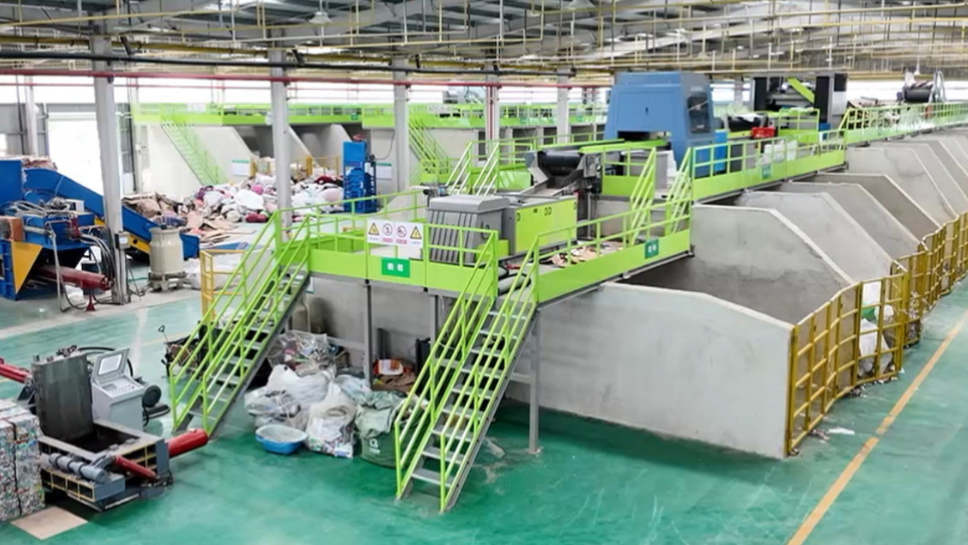 Time:2025-01-23
Time:2025-01-23
 Source:青绿环境
Source:青绿环境
With the growing global awareness of environmental protection and the increasing demand for the effective utilization of resources, recyclable waste sorting centers, as an important link in the urban solid waste management system, are facing unprecedented opportunities for development. Since 2017, China has gradually implemented waste sorting policies, which have not only enhanced public environmental awareness but also given rise to a huge potential market—the market for recyclable waste sorting and processing.

Recyclable Waste Sorting Centers
I. Market Prospects
1.Policy Support
In recent years, the Chinese government has introduced a series of policies and regulations related to waste reduction, sorting, and resource utilization, such as the Solid Waste Pollution Prevention and Control Law of the People's Republic of China. These policies provide strong support for the development of recyclable waste sorting centers.
2.Market Demand
With economic growth and rising consumption levels, the amount of waste generated by people is also increasing. At the same time, the demand for resource recycling is becoming more urgent, which creates a broad market space for recyclable waste sorting centers in handling waste materials such as plastics, metals, and paper.
3.Technological Innovation
The application of new technologies, such as the Internet of Things (IoT), big data analytics, and artificial intelligence, can significantly improve sorting efficiency, reduce operating costs, and more accurately match supply and demand. This, in turn, promotes the rapid development of the entire industry.
II. Profit Models
1.Government Subsidies
Many local governments, in order to encourage and support the construction and development of recyclable waste sorting centers, offer certain financial subsidies or tax incentives. This is one of the important factors in attracting investors in the early stages.
2.Sales of Recycled Raw Materials
After sorting and organizing the collected recyclables, sorting centers can directly sell them to downstream enterprises as raw materials for production. For example, scrap metal can be sold to smelters, and waste paper can be supplied to paper mills. Revenue from such sales is a major source of profit.
3.Service Charges
For some large commercial institutions or communities, they may choose to entrust their waste to professional sorting centers for processing and pay the corresponding service fees.
4.Cooperative Operation
Establishing cooperative relationships with enterprises in the upstream and downstream industrial chains to jointly invest in projects and develop new technologies together can share profits. For example, collaborating with research institutions to develop efficient sorting equipment or partnering with manufacturing companies to build a circular economy industrial chain.
Recyclable waste sorting centers have a very bright market prospect not only in China but also globally. They can not only help solve the increasingly serious waste problem but also bring significant economic and social benefits to enterprises. In the future, with the dual drive of policy guidance and technological progress, this industry is bound to usher in an even more brilliant period of development.













 Prev
Prev











